Many special art programs were performed to celebrate the country's major holidays - Photo: Tuan Minh
Proclamation dated August 28, 1945 of the Provisional Government of the Democratic Republic of Vietnam in the national cabinet, the Ministry of Information and Propaganda was established. To suit each stage of development of the nation's history, under the direction of the Party and the State, the Ministry was arranged according to many different organizational models and names such as: Information and Propaganda Department, Ministry of Culture, Ministry of Culture - Information... and now the Ministry of Culture, Sports and Tourism (VHTTDL). Regardless of the organizational model, under any name, the Cultural Sector always strives and is determined to carry out its tasks, maintain its position, role and sacred mission of "culture must light the way for the nation to go". Eight decades have passed, under the light of Marxism - Leninism and Ho Chi Minh's thought; the wise and talented leadership of the Party; With the drastic and effective management and administration of the State, the Vietnamese cultural sector has joined the long march of victory, writing brilliant golden pages and making great contributions to the glorious revolutionary cause of the Party and the nation.
1. Culture in the process of revolutionary struggle for independence, freedom and national unification
Right from the early days of the revolution, when the country had not yet achieved independence, our Party identified the special position and role of culture and placed culture in a key position in the strategy of fighting for national liberation and national unification. The Outline on Vietnamese Culture in 1943, drafted by General Secretary Truong Chinh, established the ideology, principles, methodology and strategic orientation for Vietnamese culture. The Outline affirmed the Party's leadership role in the cultural field: "Only by leading the cultural movement can the Party influence public opinion and the Party's propaganda be effective" (1); at the same time, it affirmed: "The cultural revolution in Vietnam must rely on the national liberation revolution to have the conditions to develop" (2), aiming at building a socialist culture. The three fundamental principles of Vietnamese culture identified by our Party are: National, Scientific , and Mass, which are consistent with the practical laws of our country's revolution and still retain their current value to this day. With these three principles, the Outline not only paved the way for a new culture - a revolutionary culture, but also clearly identified culture as one of the three fronts, from which: " Must complete the cultural revolution to complete the social transformation" (3). That is also the theoretical torch that lights the way for generations of cultural cadres to constantly strive for an advanced Vietnamese culture, imbued with national identity.
Cultural activities of the agency during the resistance war against France - Documentary photo
When the Outline of Vietnamese Culture was born, the national cultural revolution officially entered a new historical stage, closely linked to and directly serving the cause of national liberation, independence and freedom. Under the leadership of the Party and President Ho Chi Minh , culture became an important ideological weapon, contributing to calling and gathering the strength of the entire people to make the victory of the August Revolution in 1945 - a historical event, opening a new era for the nation. The heroic atmosphere of those years still resonates in songs such as Tien Quan Ca by Van Cao, Diet Phat Xit by Nguyen Dinh Thi, or Muoi Nin Thang Tam by Xuan Oanh. After independence, propaganda and agitation work became the driving force to rebuild the country, eliminate illiteracy, and improve people's knowledge. Right at the most difficult time of the resistance war against France, at the National Cultural Conference in November 1946, President Ho Chi Minh affirmed: "Culture must light the way for the nation to go". With the motto "cultural resistance, cultural resistance", press, information and propaganda work were promoted; art forms such as revolutionary songs, poetry, drama... flourished, fanning the flames of patriotism and fighting spirit. In the Letter to Artists on the occasion of the 1951 Painting Exhibition , he advised: "Culture and art are also a front. You are soldiers on that front". Following Uncle Ho's teachings, artists and cultural workers overcame countless hardships, bringing great spiritual strength, contributing to the resounding Dien Bien Phu victory that shook the world in 1954.
During the resistance war against the US (1954-1975), literature and art developed vigorously, reflecting the fighting life, labor and production in the North and the indomitable spirit of the people in the South. A socialist culture gradually took shape with the birth of institutions such as theaters, cinemas, libraries, museums... serving the masses and contributing to building a new socialist human being. Even in the context of war, there was still the reception of the quintessence of human culture, especially from socialist countries, enriching the spiritual life of the nation. In tune with the revolutionary torrent, many artists, journalists and soldiers set out, carrying the heroic spirit in To Huu's poem: "Splitting Truong Son to save the country/ With hearts filled with the future" . Movements such as "singing over the sound of bombs", written pages, poems, and songs born from reality aroused the fighting spirit, contributing to bringing the nation to the great victory of Spring 1975, liberating the South and unifying the country.
President Ho Chi Minh visits the Vietnam Museum of History (1961) - Photo archive
Thus, we can affirm that, in the two resistance wars against France and the US, culture and information truly became a sharp spiritual weapon, inspiring patriotism, fostering a strong will and strengthening belief in the victory of the revolution. Revolutionary artists and journalists immersed themselves in the fighting life, “using pens as swords”, turning art into weapons. They were the “soldiers” on the cultural and ideological front, either directly participating in the fight or composing to encourage the spirit of resistance. Poetry, music, drama, painting, cinema, journalism… all carried the breath of the battlefield, reflecting courage, loyalty and steadfast belief in the day of victory, even, as poet Pham Tien Duat assessed, “having the strength of a division”.
The development of the cultural sector during this period was reflected in its political mettle, adaptability and steadfastness amidst bombs and bullets. Culture was now not only a propaganda tool, but also a great source of internal strength, encouraging our army and people to defeat all invaders, gain independence, freedom and unify the country. Many artists, journalists, directors and cameramen sacrificed their lives on the battlefield, leaving behind invaluable works, films and writings. Their blood has merged with history, making the glorious heroic tradition of the nation and the Vietnamese cultural sector shine even brighter.
2. Culture - the spiritual foundation and driving force for socio-economic development in national construction and development
The Party's guidelines and policies on building and developing culture are increasingly comprehensive and profound, thereby the position and role of culture are increasingly nurtured and raised to new heights.
After the reunification day (April 30, 1975), Vietnam entered a period of recovery and reconstruction with numerous difficulties. In that context, culture continued to affirm its position as a great spiritual resource, contributing to healing the wounds of war, consolidating the great national unity, and arousing the aspiration to build a peaceful, prosperous, and happy country. In all regions, cultural institutions were consolidated, and the apparatus of the Culture - Information sector was strengthened. The movement to build a grassroots cultural life spread widely to every factory, enterprise, forestry farm, agency, village, etc., becoming a spiritual support and an environment to nurture new socialist people.
The historical turning point came in 1986, when the Party initiated and led the comprehensive national renovation. Along with the transition from a centrally planned, bureaucratically subsidized economy to a socialist-oriented market economy and expanding international integration, cultural management was also strongly innovated to meet new requirements. The system of cultural development policies was born, contributing to solving difficulties for cultural activities, mobilizing many social resources, especially in implementing the restoration of relics, building cultural and sports works, etc., creating new vitality for cultural, information and sports activities across the country.
The National Cultural Conference implementing the Resolution of the 13th National Party Congress, held on November 24, 2021, created a strong influence, raising awareness throughout the political system and all classes of people about the position and role of culture - Photo: Tuan Minh
The Platform for National Construction in the Transitional Period to Socialism adopted at the 7th National Congress of the Party (1991) clearly affirmed: The socialist society that our people are building is a society with an advanced culture, imbued with national identity. From that perspective, many resolutions of the Central Committee continued to show special attention to culture. In particular, Resolution 5 of the 8th Central Committee (1998) - the first resolution of the Party on culture, emphasized the task of building and developing an advanced Vietnamese culture, imbued with national identity; considering culture as the spiritual foundation of society, at the same time the goal and driving force for socio-economic development. Next, Resolution No. 23-NQ/TW of the 10th tenure (2008) set out the direction for innovation and improvement of the quality of literary and artistic activities in the new period, considering this a particularly sophisticated field of culture, contributing significantly to the building of the spiritual foundation of society and the comprehensive development of the Vietnamese people. Resolution No. 33-NQ/TW, 11th tenure (2014) on “Building and developing Vietnamese culture and people to meet the requirements of Vietnamese people to develop comprehensively, towards truth - goodness - beauty, imbued with national, humanistic, democratic and scientific values. Culture is identified as the solid spiritual foundation of society, an important source of endogenous strength to ensure sustainable development and firmly protect the Fatherland, aiming to achieve the goal of a rich people, strong country, democracy, equality and civilization. It can be said that these resolutions are strategic orientations, creating important theoretical and practical foundations for the process of building and developing Vietnamese culture in the new period.
In particular, the National Cultural Conference to implement the Resolution of the 13th National Party Congress, held on November 24, 2021, has become an important milestone. This is the first national cultural conference to be held 75 years after President Ho Chi Minh chaired the first National Cultural Conference in 1946. This event has created a strong influence, raising awareness throughout the political system and all classes of people about the position and role of culture in the country's development. In that spirit, our Party continues to affirm the viewpoint: culture must be placed on par with economics, politics and society in the process of national development.
General Secretary To Lam at the meeting with artists and writers on December 30, 2024 - Photo: Tran Huan
Important achievements of culture and the role of the cultural sector in the cause of national innovation
After nearly 40 years of renovation, it can be said that our country has never had such a foundation, potential, position and international prestige as today. The Cultural sector is very proud to have truly contributed positively to the great achievements and outstanding development of the country after nearly 40 years of renovation.
First of all , under the light of the Party's guidelines and policies, the State's legal policies over 40 years of renovation, especially in recent times, have fundamentally changed the awareness and actions of Party committees at all levels, authorities, people and the business community about the position and role of culture in the revolutionary cause of the Party and the nation. In most important forums and conferences of the Central, local and international relations, culture has always been present as one of the pillars in the strategy of building and defending the Fatherland. Accordingly, the awareness and practice of culture among cadres, party members and people have fundamentally changed in quality; cultural practice towards the values of "truth, goodness, beauty" has been increasingly popularized in social life. Correct awareness leads to beautiful, concrete, drastic and creative actions. The indicators and indicators on the development of culture, family, people, information, sports and tourism in the documents of the Party congresses at all levels, in the socio-economic development programs/plans of localities have never been mentioned as fully, comprehensively and thoroughly as in the past time. In particular, investment in culture in some localities in the period of 2020-2025 reached a rate of over 2%, many localities reached an average of 3-4%/year of total budget expenditure.
Second , the work of institutional development has always received special attention. The whole sector has drastically changed its mindset from "doing culture" to "state management of culture" through legal tools. The Ministry of Culture, Sports and Tourism has proactively reviewed, researched, and proposed to competent authorities to perfect institutions and policies, handle many "bottlenecks and legal gaps", promote development in the direction of both ensuring state management requirements and encouraging creativity, and unleashing all resources for development. Currently, the legal system on culture, sports, tourism, press and publishing has 425 legal documents, directly regulating: 15 laws, 74 Decrees, Resolutions, 42 Decisions, Directives of the Prime Minister, 294 Joint Circulars and Circulars. During the 13th National Party Congress alone, the Ministry of Culture, Sports and Tourism presided over the drafting, promulgation, submission to competent authorities for promulgation, and completion of 124 legal documents. Of which, there were 5 Laws, 1 Resolution of the National Assembly, 30 Decrees of the Government, 1 Decision of the Prime Minister, and 87 Circulars. A particularly important highlight was that at the 9th Session, the 15th National Assembly issued a Resolution approving the investment policy of the National Target Program on Cultural Development for the 2025-2035 period. At the same time, the Government and the Prime Minister issued many strategies and plans for the development of the Industry with a long-term vision of 10 years and 20 years. This is a testament to the strategic vision, helping Vietnamese culture, information, sports and tourism to converge their identities and shine and accelerate in the "Era of national development".
In the context of streamlining the organizational apparatus of the political system and implementing the two-level local government model, the Culture sector has advised on the issuance of many important documents on decentralization, delegation of power, and determination of authority in the fields of culture, information, sports and tourism. Thereby, continuing to affirm the strong transformation in the thinking and actions of the entire sector so that the flow of culture permeates deeply into every source of life, connecting the culture of communities, regions, villages, communes, etc. to form a great national unity bloc, fostering courage, arousing the aspiration for development and building a strong Vietnam.
Third , the work of building a cultural environment is increasingly going into depth and substance. The movement "All people unite to build a cultural life" associated with the Campaign "All people unite to build new rural areas and civilized urban areas" has taken place vigorously in residential areas, agencies, units and enterprises with many practical activities. Cultural activities take people as the subject, both as beneficiaries and as cultural creators. Through village conventions and conventions, on the basis of voluntariness and self-management, relationships have been adjusted, contributing to the formation of many cultural villages, cultural residential areas, and typical cultural families; many festivals have been restored and maintained; grassroots institutions such as cultural houses, libraries, etc. have promoted their functions, contributing to preserving traditional cultural identity, improving people's knowledge, and fostering a civilized and healthy lifestyle.
Fourth , the Vietnamese cultural heritage system has never been as widely known to the world as it is today. Currently, the whole country has more than 40,000 relics and nearly 70,000 intangible cultural heritages inventoried, of which 36 heritages have been recognized/listed by UNESCO. In addition to strictly implementing the provisions of the law and commitments to UNESCO, we have paid attention to investing in and restoring relics; effectively exploiting and linking with tourism development, thereby contributing to the socio-economic development of localities.
Fifth, cultural industries have been oriented to develop according to the motto of "creativity - identity - uniqueness - professionalism - competitiveness", becoming the right direction in the context of developing a socialist-oriented market economy and deep international integration. Many cultural and artistic events at national and international levels have high artistic quality, serving political tasks, while also meeting the increasing demand for art enjoyment of the people. Music and film events organized by media agencies and enterprises in Vietnam, bringing together many famous artists from around the world, have attracted millions of audiences, contributing to stimulating tourism. In the period of 2015-2025, cultural industries contributed from 4 - 4.5% to the country's GDP. These are very encouraging results in the context of the country still facing many difficulties in terms of resources and the impact of the COVID-19 pandemic.
Sixth , the work of preserving and promoting the cultural heritage of ethnic minorities has been effectively implemented, helping to narrow the gap in cultural enjoyment between regions with many preservation policies and building cultural models. The Ministry of Culture, Sports and Tourism has coordinated with localities to periodically organize cultural, sports and tourism festivals for ethnic minorities in regions as well as at the Vietnam Ethnic Culture and Tourism Village, contributing to preserving and promoting traditional cultural values, improving the material and spiritual life of the people.
Cultural diplomacy work has been constantly strengthened and expanded - in photo: In the presence of General Secretary To Lam and President of the Republic of Korea Lee Jae Myung, Minister of Culture, Sports and Tourism Nguyen Van Hung and Minister of Culture, Sports and Tourism of the Republic of Korea Chae Hwi Young signed a Memorandum of Understanding on cooperation on copyright and related rights between the two ministries, within the framework of General Secretary To Lam's State visit to the Republic of Korea (August 2025) - Photo: VNA
Seventh , the culture of foreign relations has been strongly transformed from “meeting and exchanging” to “genuine cooperation”. Accordingly, international cooperation agreements on culture, information, sports and tourism have been signed at many levels.
Vietnamese culture and arts are increasingly present in bilateral and multilateral forums. For the first time, Vietnam has assumed a position in 6 key management mechanisms of UNESCO. Hundreds of cultural weeks/days, cultural festivals and Vietnamese tourism abroad have been successfully organized, contributing to building the brand, developing the socio-economy of localities and enhancing the country's position; improving Vietnam's soft power index in the international arena.
Eighth , Vietnamese sports have made great strides. The mass sports movement has developed widely, attracting a large number of people to participate, improving community health. High-performance sports have achieved many successes in regional and international arenas, bringing national pride and strongly inspiring the whole society. For the first time, Vietnam has led two consecutive SEA Games, especially for the first time winning the overall title at a Games held in a neighboring country. Vietnamese football and other important sports have made great strides such as: the women's football team won the right to participate in the 2023 Women's World Cup; the national men's U23 football team and women's football team won the SEA Games gold medal; the U23 team won the runner-up position at the 2018 U23 Asian Cup... and many other prestigious regional, continental and international titles.
Nine , tourism has become a bright spot in the country's economic picture after the COVID-19 pandemic. In the recent past, Vietnam has been continuously honored as the leading tourist destination in Asia and the world. Tourism today is not only a bridge to bring Vietnamese identity to the world, but also a journey to receive the quintessence of humanity, so that Vietnamese culture can converge and shine in the global cultural flow.
Tenth , the press, media and publishing sector has performed well its role as the voice of the Party, the State and the people's forum, promptly propagating the Party's guidelines and policies and the State's policies. The press has actively fought against negativity, corruption, waste, and refuted false and hostile arguments; at the same time, promoted the image of Vietnam to the world, contributing to enhancing the country's position and prestige. Publishing units have diversified their products by promoting the transformation of traditional business models to technology applications, while developing e-commerce channels to better serve the needs of readers.
With outstanding achievements over the past 80 years, the Cultural sector has been awarded many noble awards by the Party and State: Gold Star Order, Ho Chi Minh Order...
The above achievements are thanks to the deep and comprehensive attention of the Party Central Committee, directly and regularly by the Politburo, the Secretariat, headed by the General Secretary; the attention, accompaniment, innovation in the content and methods of operation of the National Assembly; the drastic, wise and flexible direction of the Government Party Committee, the Government, and directly by the Prime Minister; the close coordination of the Central and local departments, ministries and branches, the consensus and support of all classes of people. In addition, there is the joint efforts, unanimity, and efforts to strive for the noble cause of generations of cultural cadres through the periods; the acumen, creativity and determination of the Party Executive Committee, the Party Committee and the leaders of the Ministry of Culture, Sports and Tourism who have proactively and promptly advised the Party and the State to issue many important policies, resolutions and laws on culture; The cooperation and support of international friends has created great strength, unity and consensus in the cause of building and developing Vietnamese culture and people in the new era to meet the requirements of rapid and sustainable development of the country.
In addition to the achievements, we also frankly see that the cultural sector is still facing many difficulties and challenges: awareness of the position and role of culture in the sustainable development of the country in some areas, regions, localities, agencies and units has not really penetrated deeply, fully and comprehensively; the institutionalization of the Party's guidelines, viewpoints and policies into laws and specific, feasible policies in some areas is still lacking. There is still a gap in cultural enjoyment between regions, areas and classes. The investment resources of the whole society for culture, sports, tourism, press and publishing are higher year after year but still lower than the actual needs. Professional sports and high-performance sports have not developed sustainably. Tourism still lacks high-class, unique tourism products that create a difference in international competition. The press is facing pressure to transform digitally and protect the mainstream information flow. High quality human resources are still lacking compared to requirements and tasks.
3. Cultural development orientations in the era of national growth
Our country is entering a new era with many new requirements and demands, in which the "quad" of Party resolutions (Resolution No. 57-NQ/TW dated December 22, 2024 of the Politburo on breakthroughs in science and technology development, innovation and national digital transformation; Resolution 59-NQ/TW dated January 24, 2025 of the Politburo on international integration in the new situation; Resolution No. 66-NQ/TW on innovation in law-making and enforcement to meet the requirements of national development in the new era; Resolution No. 68-NQ/TW dated May 4, 2025 of the Politburo on private economic development) are important pillars to help the country take off.
General Secretary To Lam affirmed: “ Looking to the future, we clearly identify that if we want to develop quickly and sustainably, Vietnam cannot follow the old path. We must dare to think big, act big, carry out major reforms with the highest political determination and the most persistent efforts. The four important Resolutions issued by the Politburo in recent times will be the fundamental institutional pillars, creating strong momentum to move our country forward in the new era, realizing the vision of a developed, high-income Vietnam by 2045” (4).
Prime Minister Pham Minh Chinh and Minister of Culture, Sports and Tourism Nguyen Van Hung, along with delegates, watched artists perform in a photo exhibition space about the achievements of the culture, sports and tourism sector in 2023 - Photo: Nam Nguyen
For culture to truly develop strongly, worthy of the country's stature and position in the era of national growth, we need to be determined to synchronously implement the following solutions:
Firstly, the entire cultural sector seriously and resolutely implements the guiding viewpoints of the Party Central Committee, the Politburo, the Secretariat, and the Party and State leaders on national development in the era of national growth, as well as the four key breakthrough resolutions. Advise the Politburo to issue a Resolution on Revitalizing and Developing Vietnamese Culture in the New Era to determine the direction, long-term vision, and strategy for cultural development in the era of national prosperity, civilization, prosperity, and growth. Focus on perfecting institutions, resolving difficulties and shortcomings, removing "bottlenecks" and bottlenecks, and unleashing all resources for the development of culture, sports, and tourism.
Second, continue to thoroughly grasp our Party's viewpoints on culture. In particular, continue to clearly perceive: building and developing culture is the cause of the entire people led by the Party, managed by the State, the People are the creative subjects, the team of intellectuals and artists play an important role. Developing culture is a long-term revolutionary cause, requiring revolutionary will and perseverance. In organizing and implementing work, strongly shift the mindset from doing culture to creating and serving cultural development; imbue with the guiding viewpoints of the leaders of the Ministry of Culture, Sports and Tourism: "Culture is the foundation - Information is the conduit - Sports is the strength - Tourism is the connecting bridge"; "The Ministry guides, the Department accompanies for a common mission". Continue to streamline the apparatus, improve capacity, effectiveness and efficiency. Promote decentralization and delegation of power in the direction of "locality decides, locality does, locality takes responsibility". Assign tasks in the direction of "6 clear" as directed by Prime Minister Pham Minh Chinh: clear people, clear work, clear time, clear responsibility, clear product, clear authority.
Third , build a cultural environment in a practical and effective direction, avoiding ostentation and formality to make culture increasingly permeate social life, focusing on residential areas, agencies, businesses, neighborhoods, villages, etc. Continue to implement the "National value system, cultural value system, family value system and Vietnamese human standards in the new period" in building cultural families and cultural residential areas. Increase investment in grassroots cultural institutions suitable to the cultural characteristics of regions, urban areas, rural areas, mountainous areas, islands, etc. to promote efficiency and functionality. At the same time, focus on building a digital cultural environment in the context of promoting digital transformation and technology application. Promote the study and following of Ho Chi Minh's ideology, morality and style, fight against ideological and moral degradation and lifestyle; promptly replicate good models, good people, good deeds, and advanced examples.
Fourth , promote the development of cultural industries to create national soft power. Prioritize investment in the fields of Cinema, Performing Arts, Cultural Tourism, Entertainment Industry, etc. by submitting to competent authorities to issue preferential policies on tax, land, credit, etc. to mobilize social resources for investment; enhance digital transformation, improve the quality of human resources. Submit to the Government to issue the Strategy for the development of cultural industries to 2035, with a vision to 2045, to create fundamental steps in the coming time.
Fifth , develop sports in a professional and sustainable direction. Accordingly, do a good job of mass sports, thereby improving the health and physical fitness of all people, while creating sources and selecting new factors for professional and high-performance sports. Improve the regime and policies for athletes and coaches; focus resources and modern technology to invest in high-performance athletes to compete, improve their professional qualifications, and be capable of winning medals in regional, continental and international arenas.
Sixth, develop tourism into a spearhead economic sector, capable of competing with other countries in the region in a professional, quality and effective manner. Focus on developing cultural tourism, effectively exploiting night tourism, prioritizing the development of sea and island resort tourism products and sea sports and entertainment tourism that are internationally competitive. Continue to innovate promotion work in the direction of diversification, combining both on-site and online promotion, effectively exploiting promotion through cinema and cultural festivals abroad. In addition, promote digital transformation and improve the quality of human resources.
Seventh , strengthen the management of press, media, and publishing to develop in the right direction of "humanity, professionalism, and modernity". Create an environment for press and media to widely propagate the Party's guidelines, policies, and laws of the State to the people in the fastest and most effective way. At the same time, press and publishing effectively contribute to the work of preserving and promoting national cultural identity, promoting the image, country, and people of Vietnam to the world. Promote digital transformation in press and publishing agencies and in press and publishing management. Have policies and mechanisms for press and publishing agencies to operate economically effectively, adapting to modern press and publishing trends. Continue to organize the National Press Award "For the cause of developing Vietnamese culture" with quality and prestige, further spreading cultural values to the public.
Proud of the glorious 80-year tradition of the Culture sector, we express our deep gratitude to the great President Ho Chi Minh - the founder of modern Vietnamese culture; firmly believe in the leadership of the Party, the management and administration of the State; the support and assistance of all classes of people and the merits and contributions of generations of officials of the Culture sector through the periods. With the motto "Decisive action, aspiration to contribute" and the declaration of action "Culture is the foundation - Information is the conduit - Sports is the strength - Tourism is the connecting bridge", the whole sector is determined to successfully carry out the tasks assigned by the Party, the State and the People, bringing the cause of cultural development into the era of national development with new achievements, new marks contributing to building our country more and more dignified and beautiful as beloved Uncle Ho always wished.
__________________________
1, 2, 3. Communist Party of Vietnam, Complete Party Documents , volume 7, National Political Publishing House Truth , Hanoi, 2000, p. 319.
4. Full text of General Secretary To Lam's speech at the conference to implement Resolution 66 and Resolution 68, chinhphu.vn , May 21, 2025.
NGUYEN VAN HUNG
Member of the Central Executive Committee of the Party,
Secretary of the Party Committee of the Ministry, Minister of Culture, Sports and Tourism
Source: Literature and Arts Magazine No. 615, August 2025
Source: https://www.nguoiduatin.vn/nganh-van-hoa-viet-nam-80-nam-dong-hanh-cung-su-nghiep-cach-mang-ve-vang-cua-dang-va-dan-toc-204250821172549366.htm



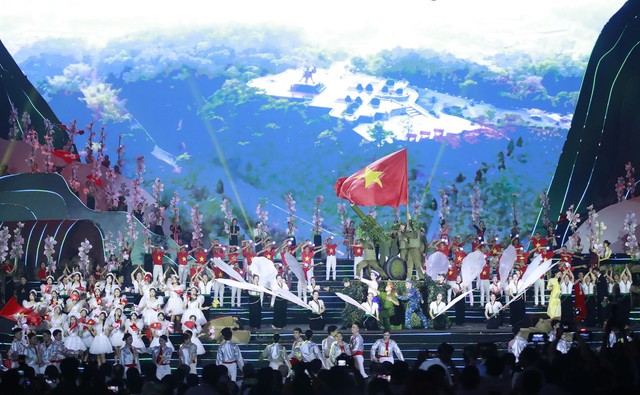
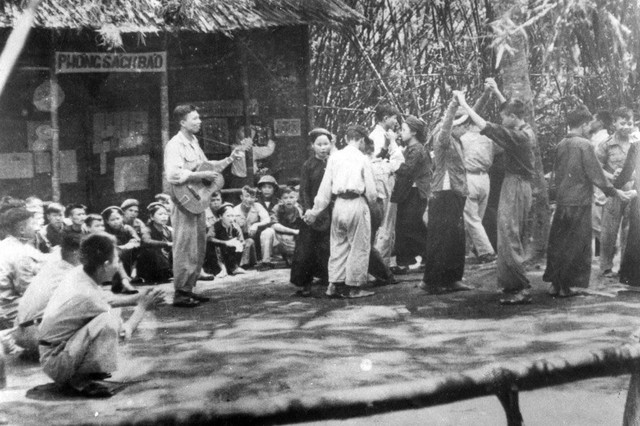
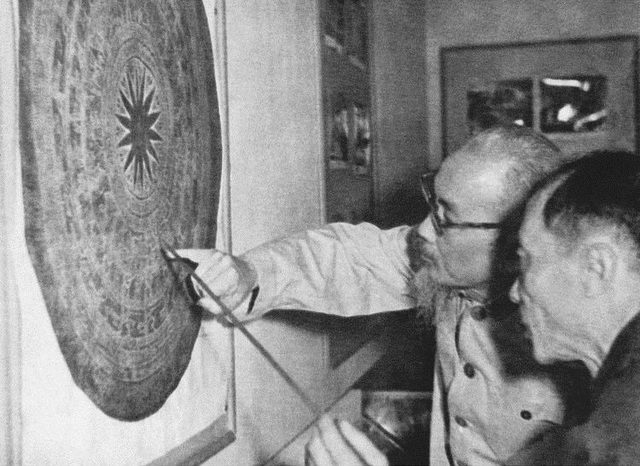
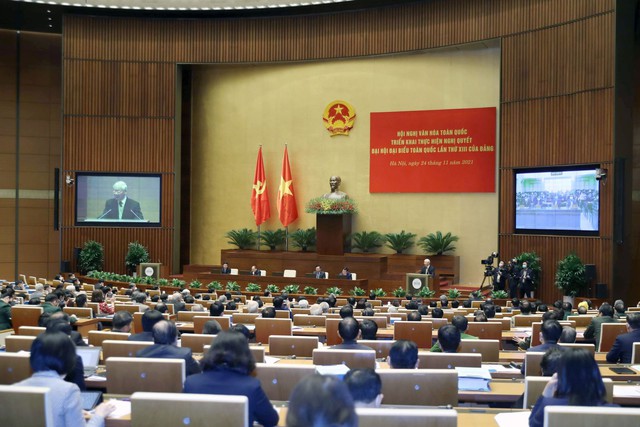
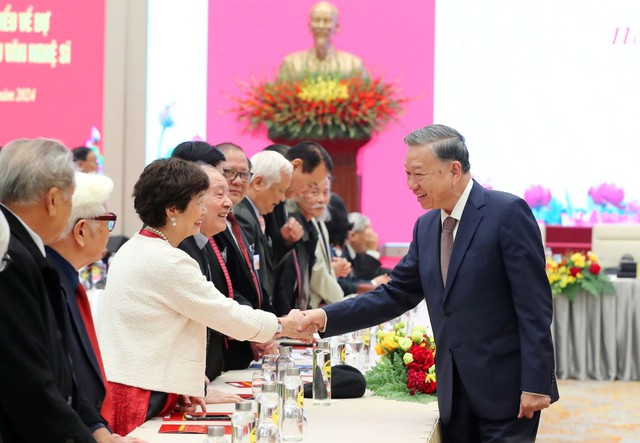
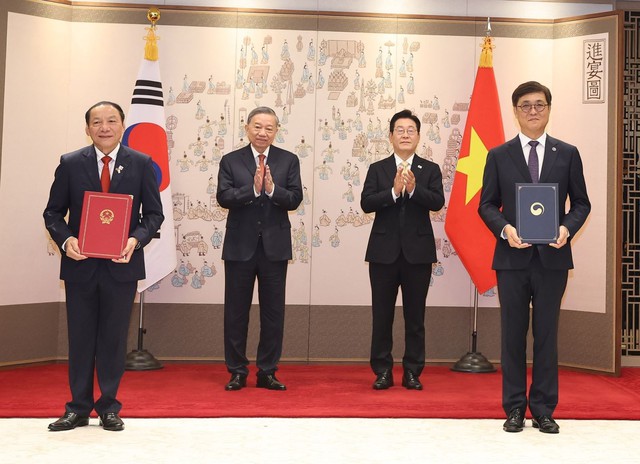
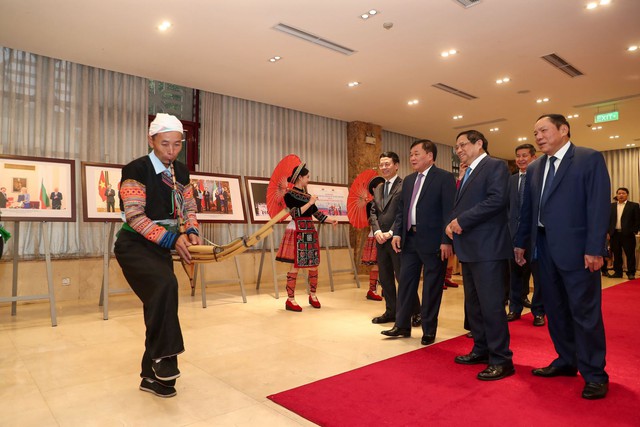
![[Photo] Prime Minister Pham Minh Chinh chairs the conference to review the 2024-2025 school year and deploy tasks for the 2025-2026 school year.](https://vstatic.vietnam.vn/vietnam/resource/IMAGE/2025/8/22/2ca5ed79ce6a46a1ac7706a42cefafae)
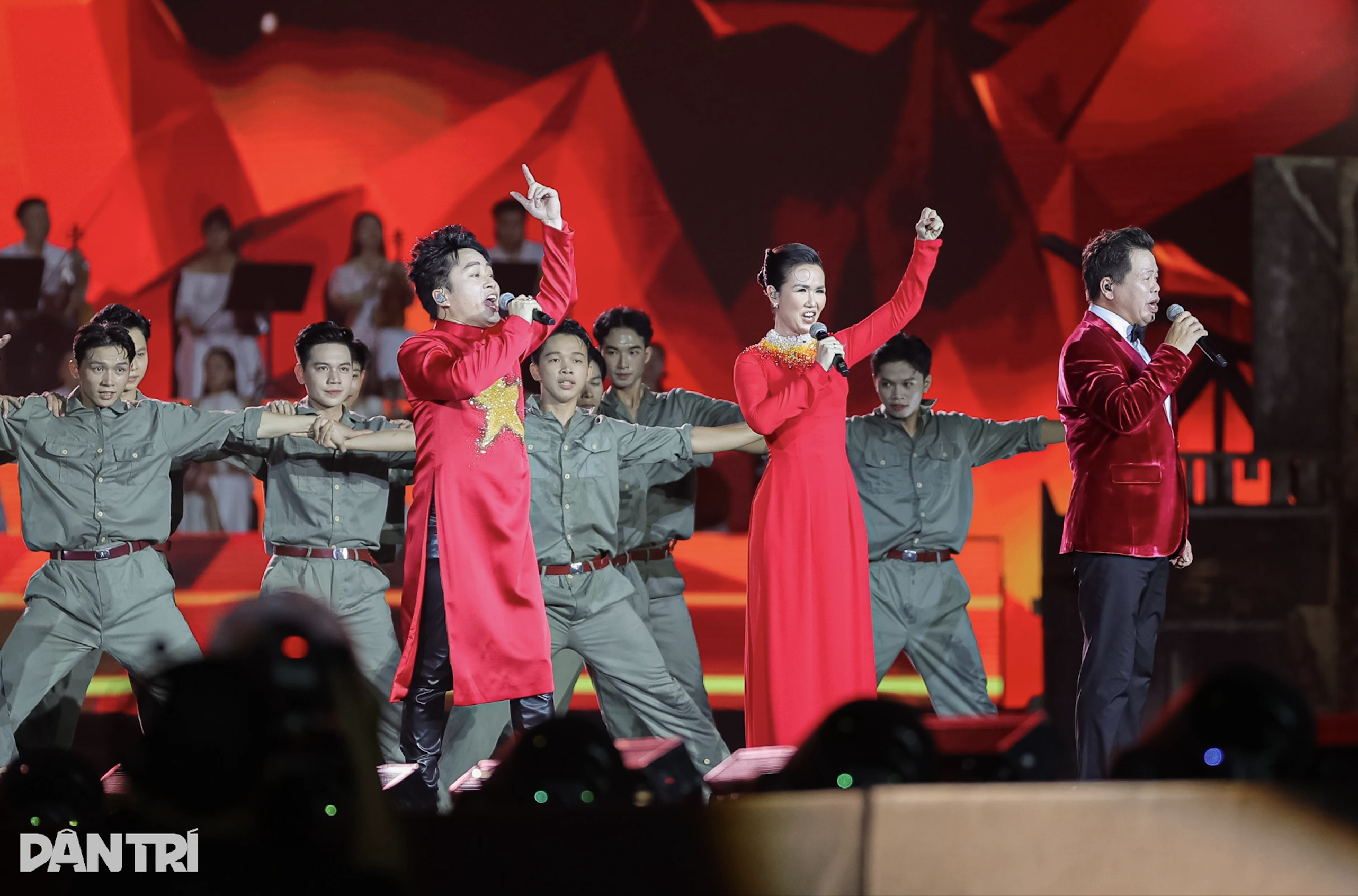
![[Photo] President Luong Cuong receives delegation of the Youth Committee of the Liberal Democratic Party of Japan](https://vstatic.vietnam.vn/vietnam/resource/IMAGE/2025/8/22/2632d7f5cf4f4a8e90ce5f5e1989194a)



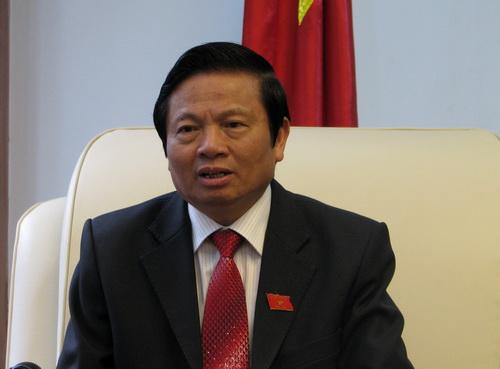

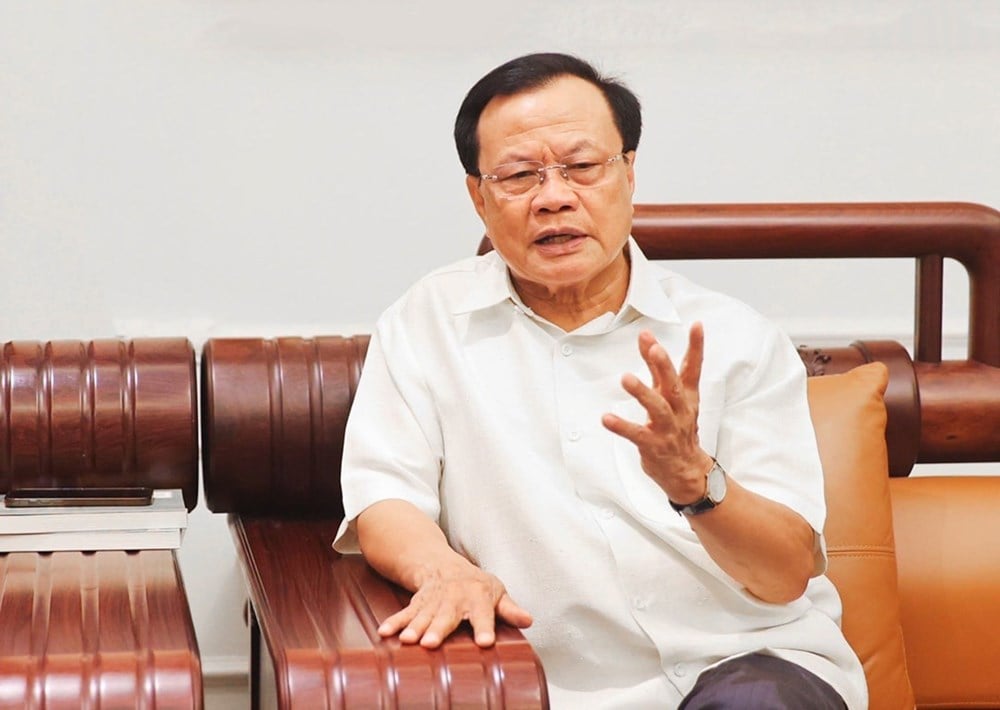


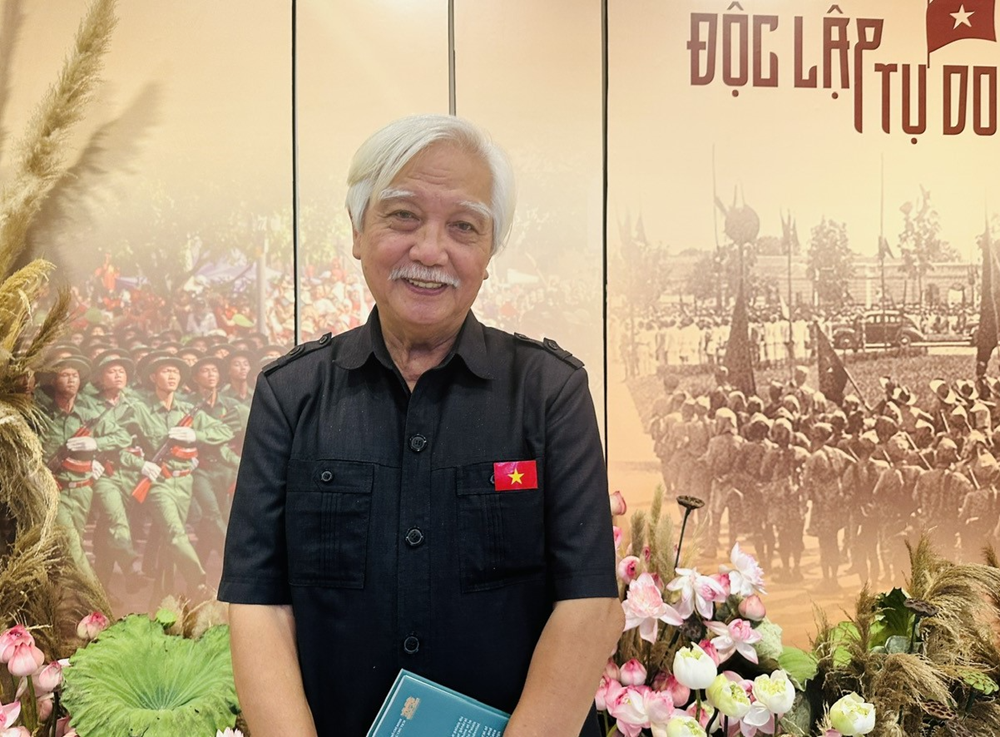
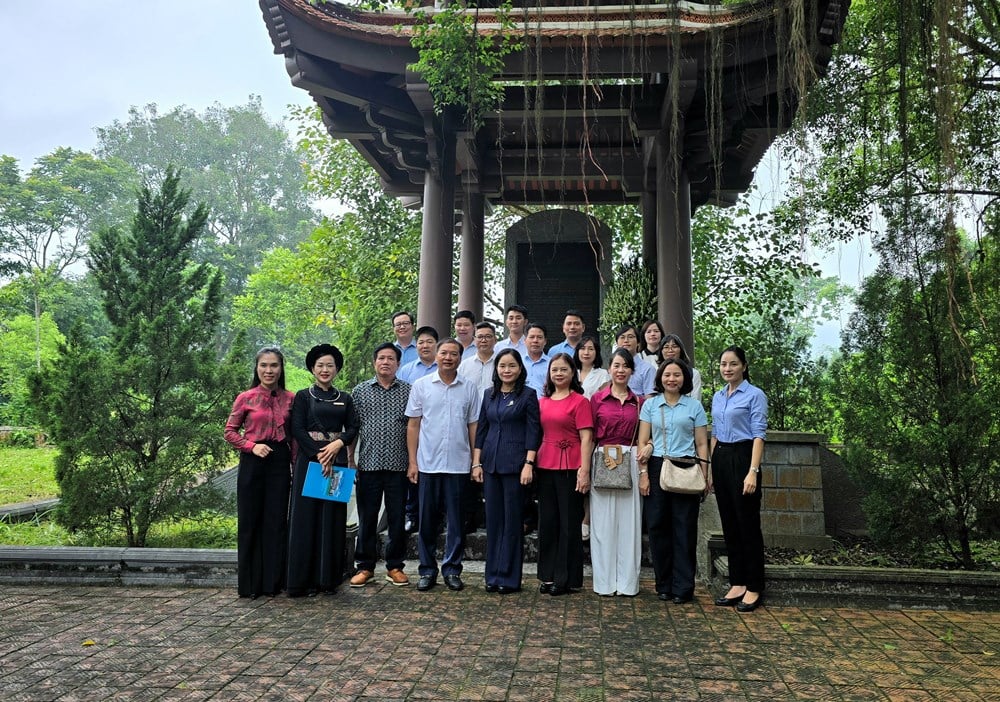


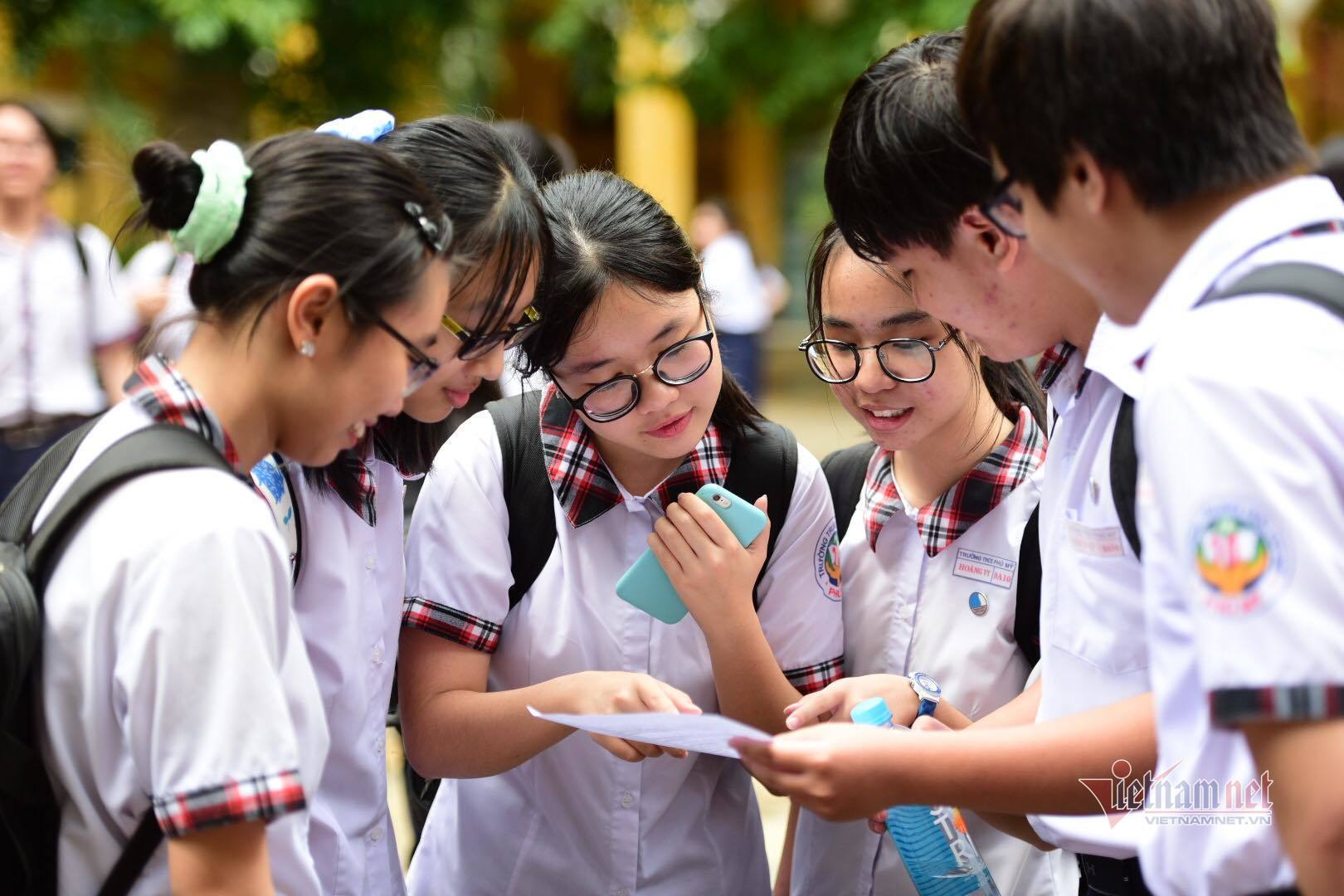







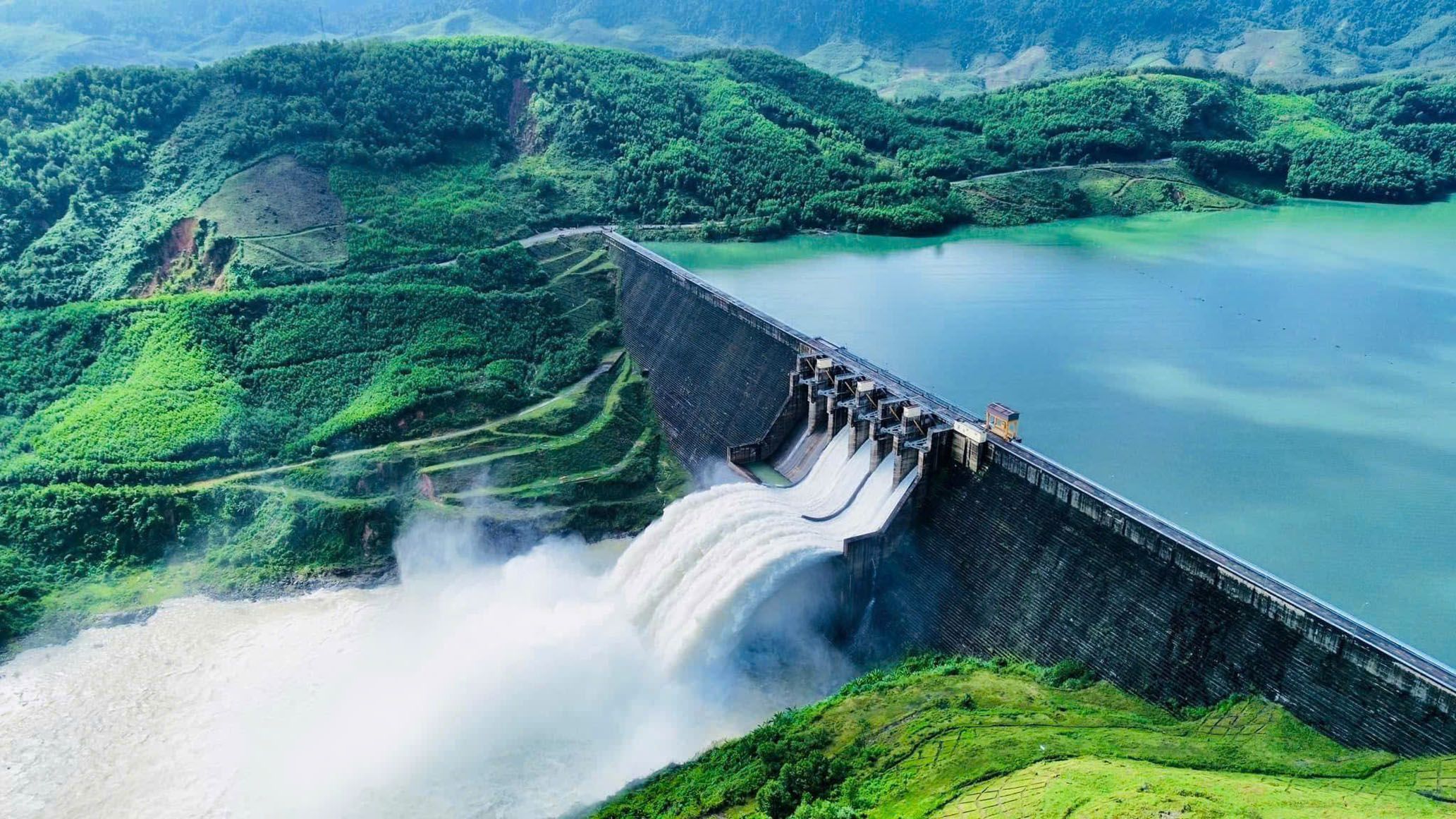






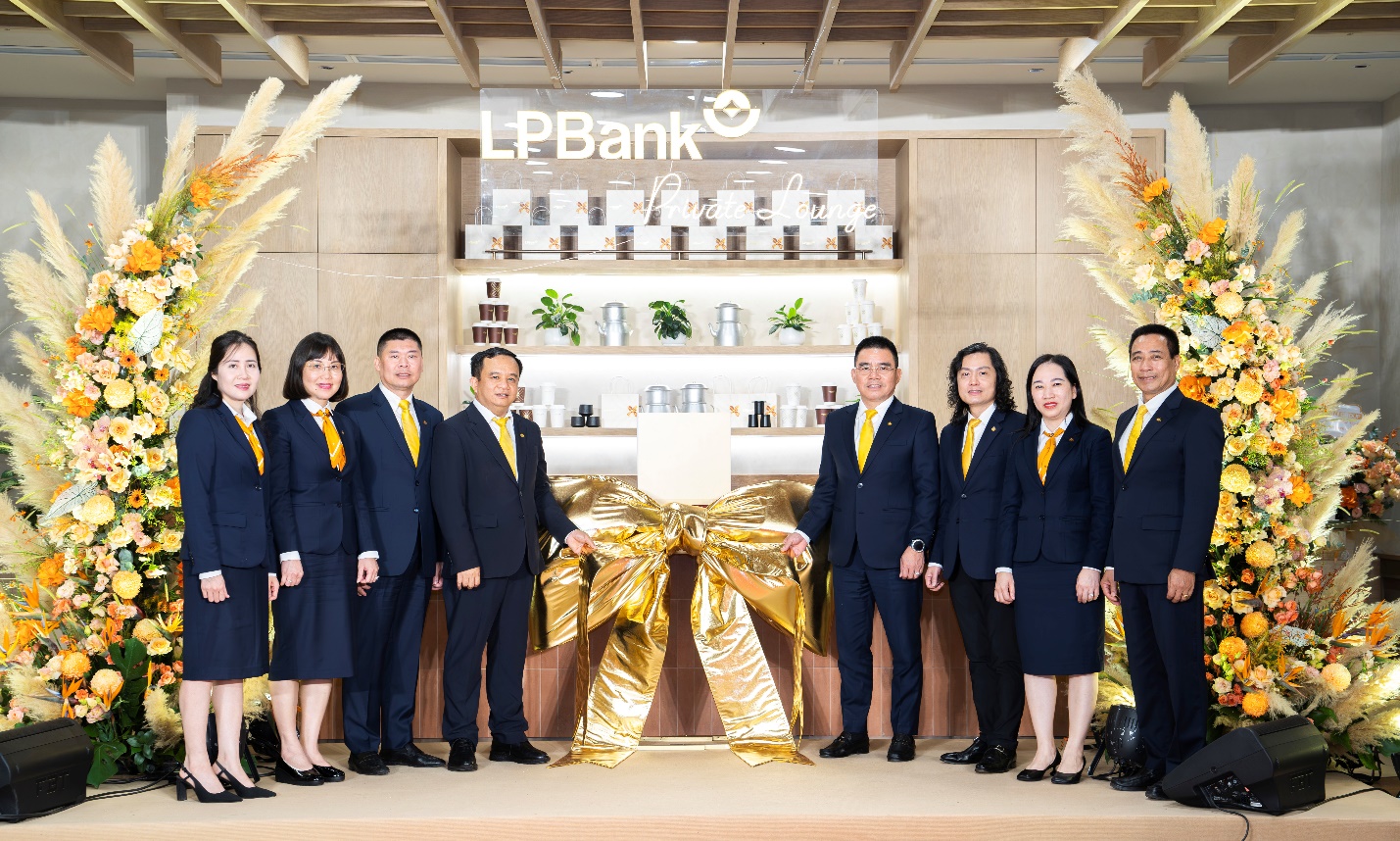

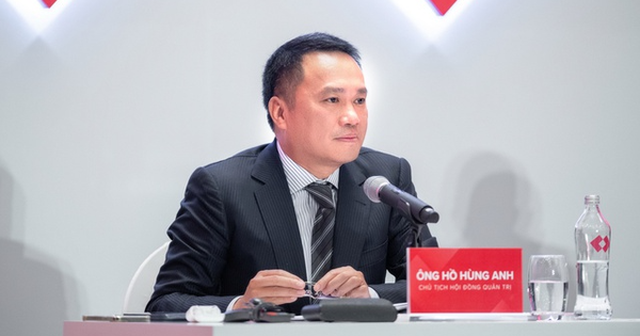
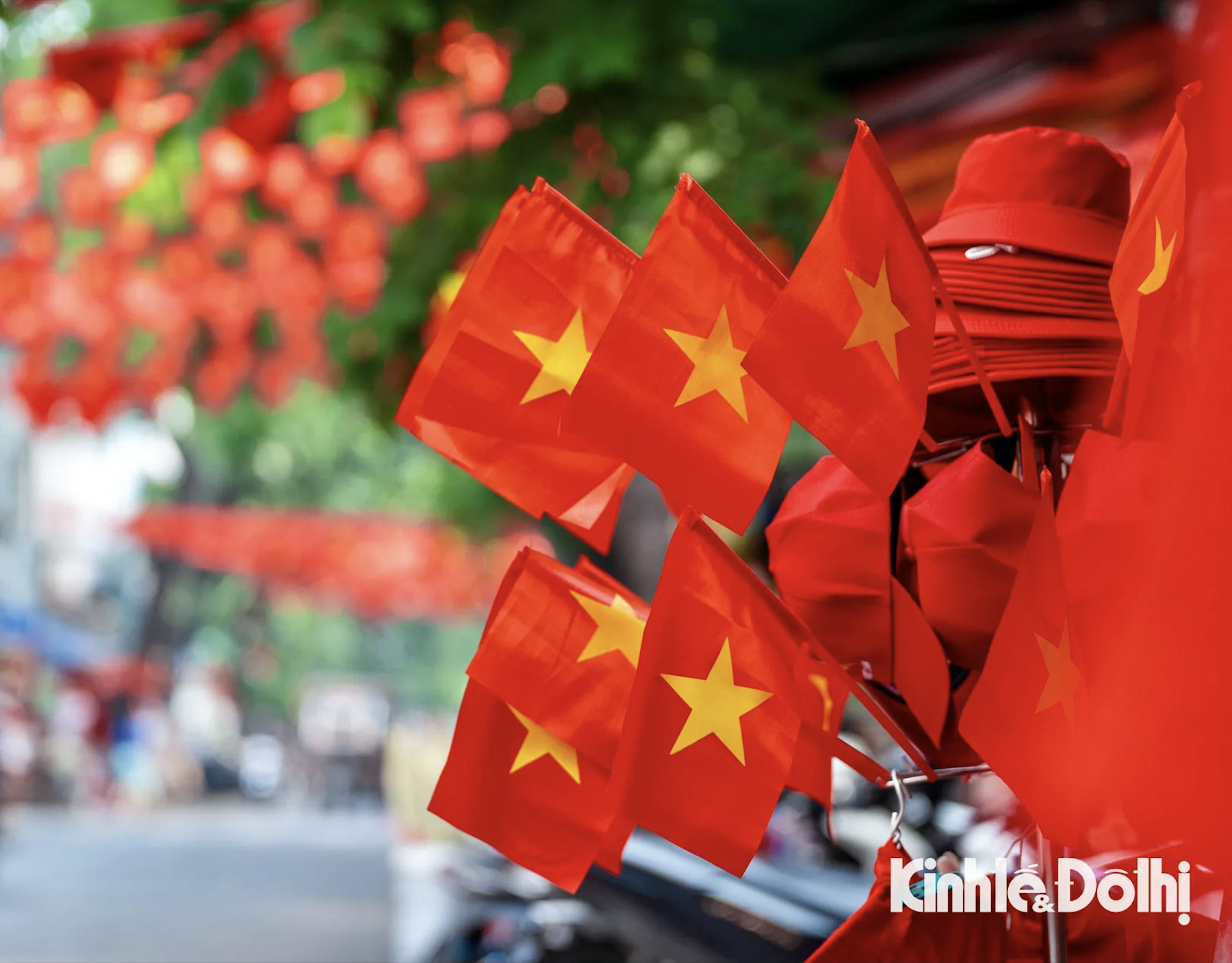






























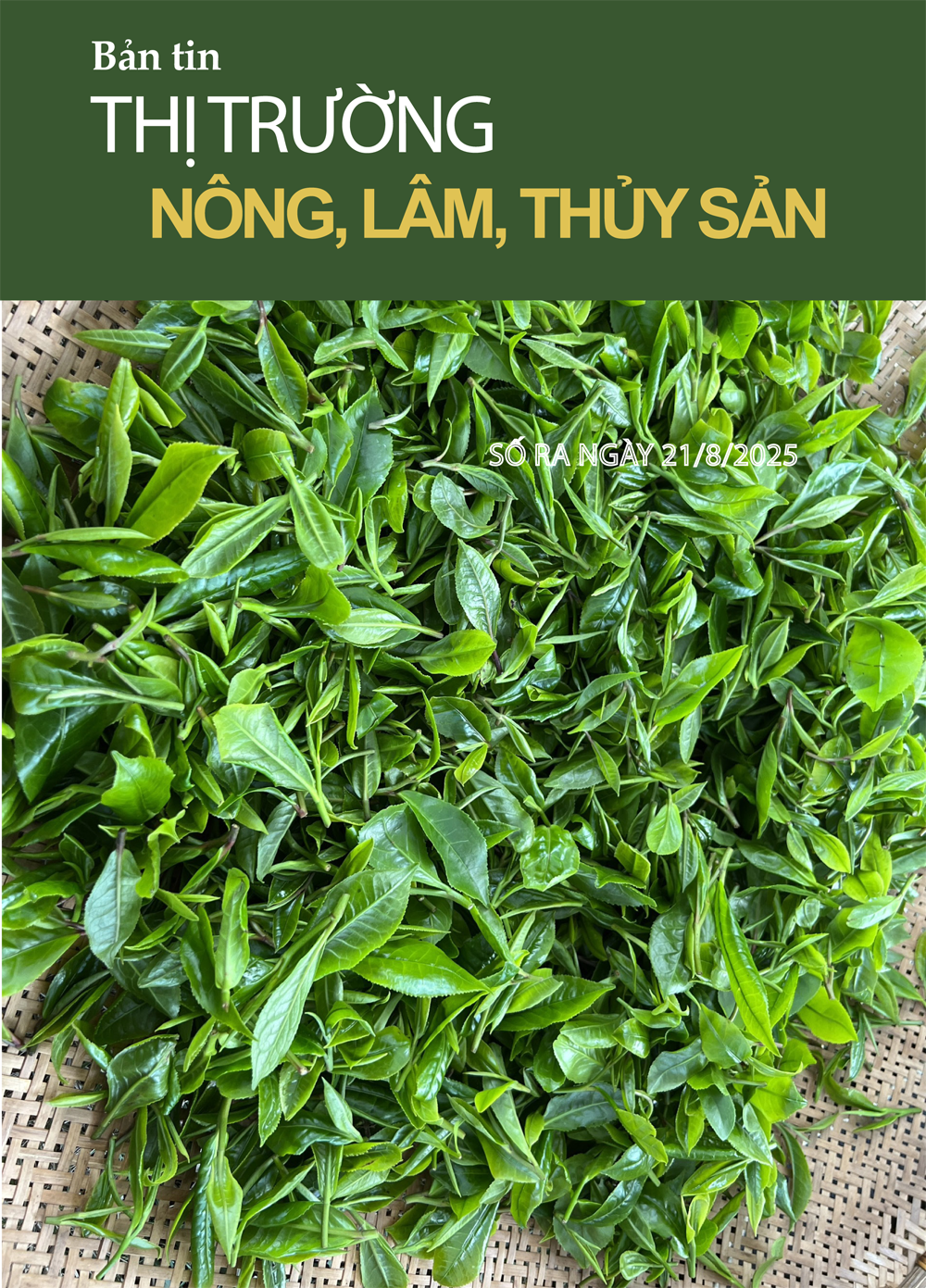

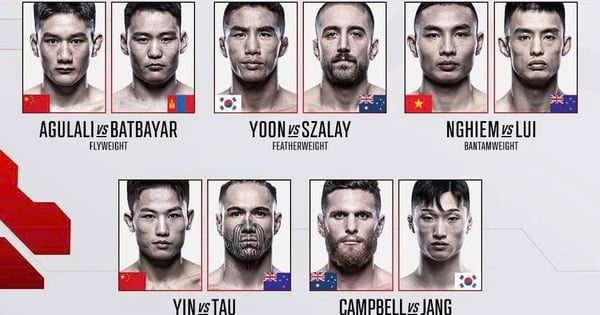
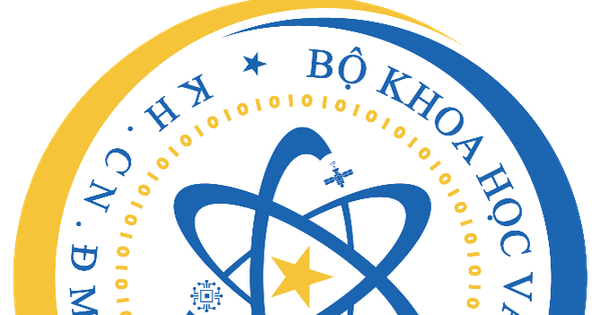

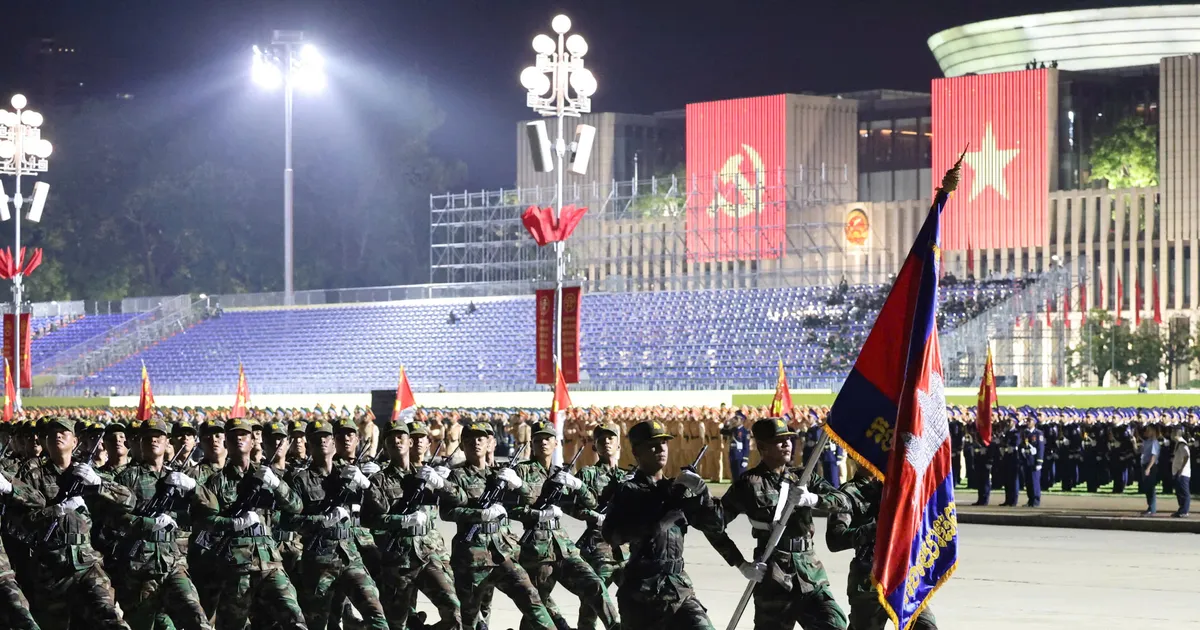
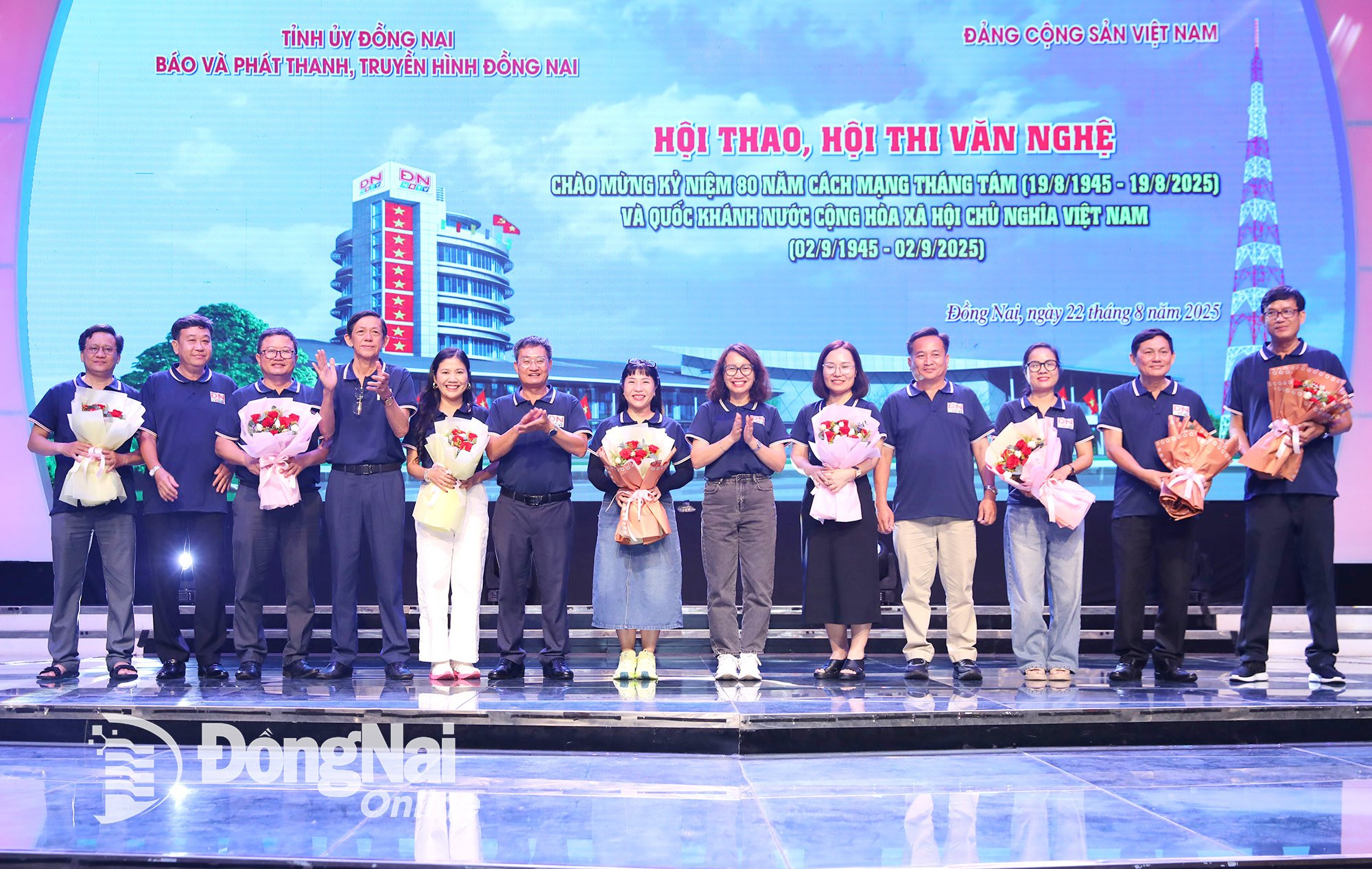

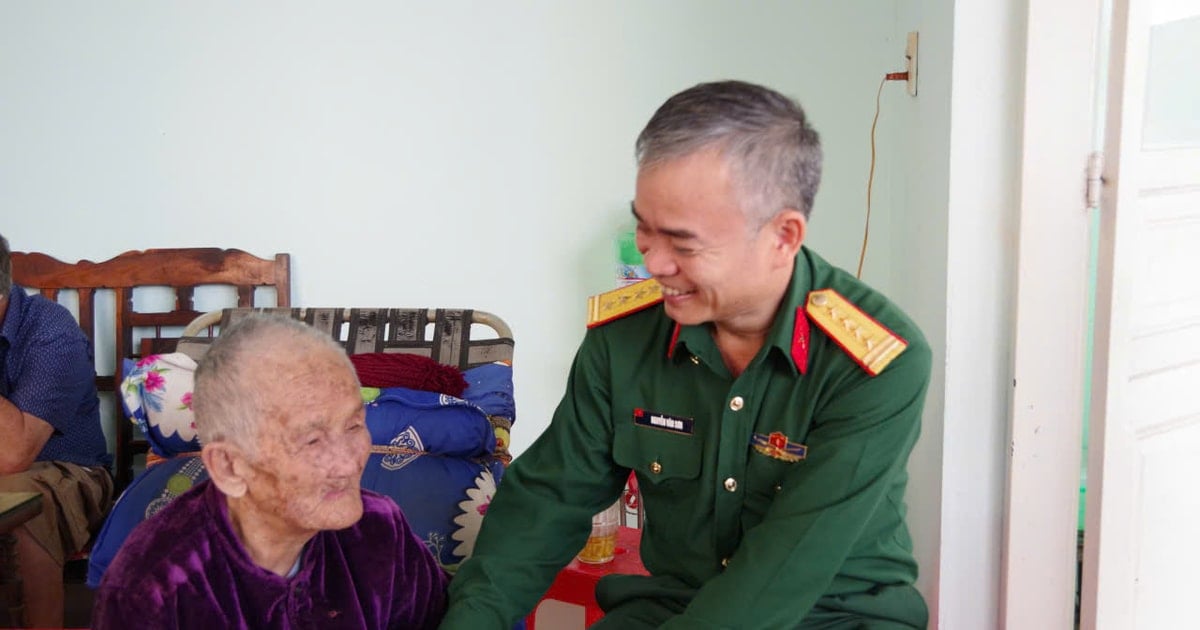

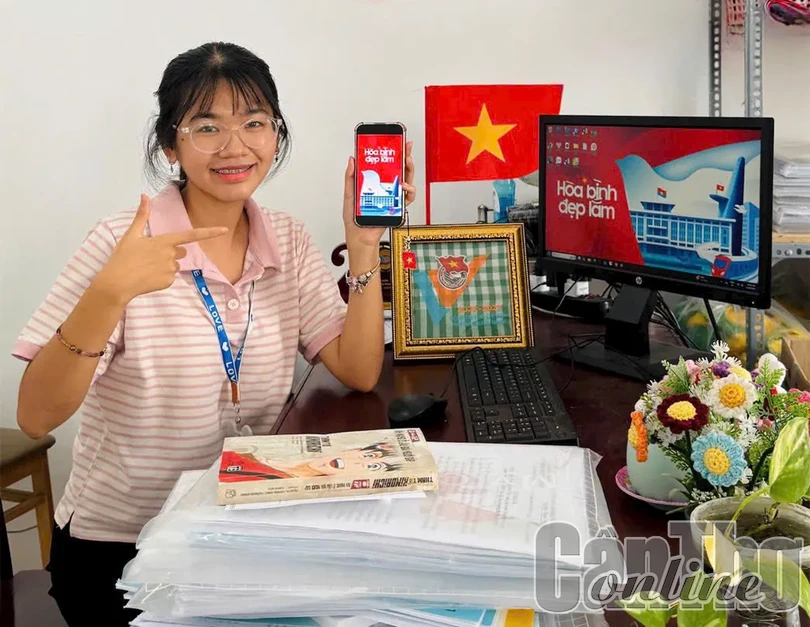

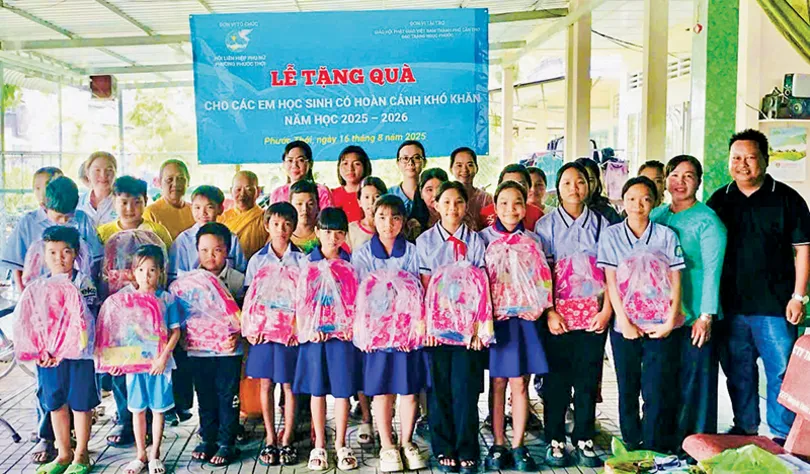
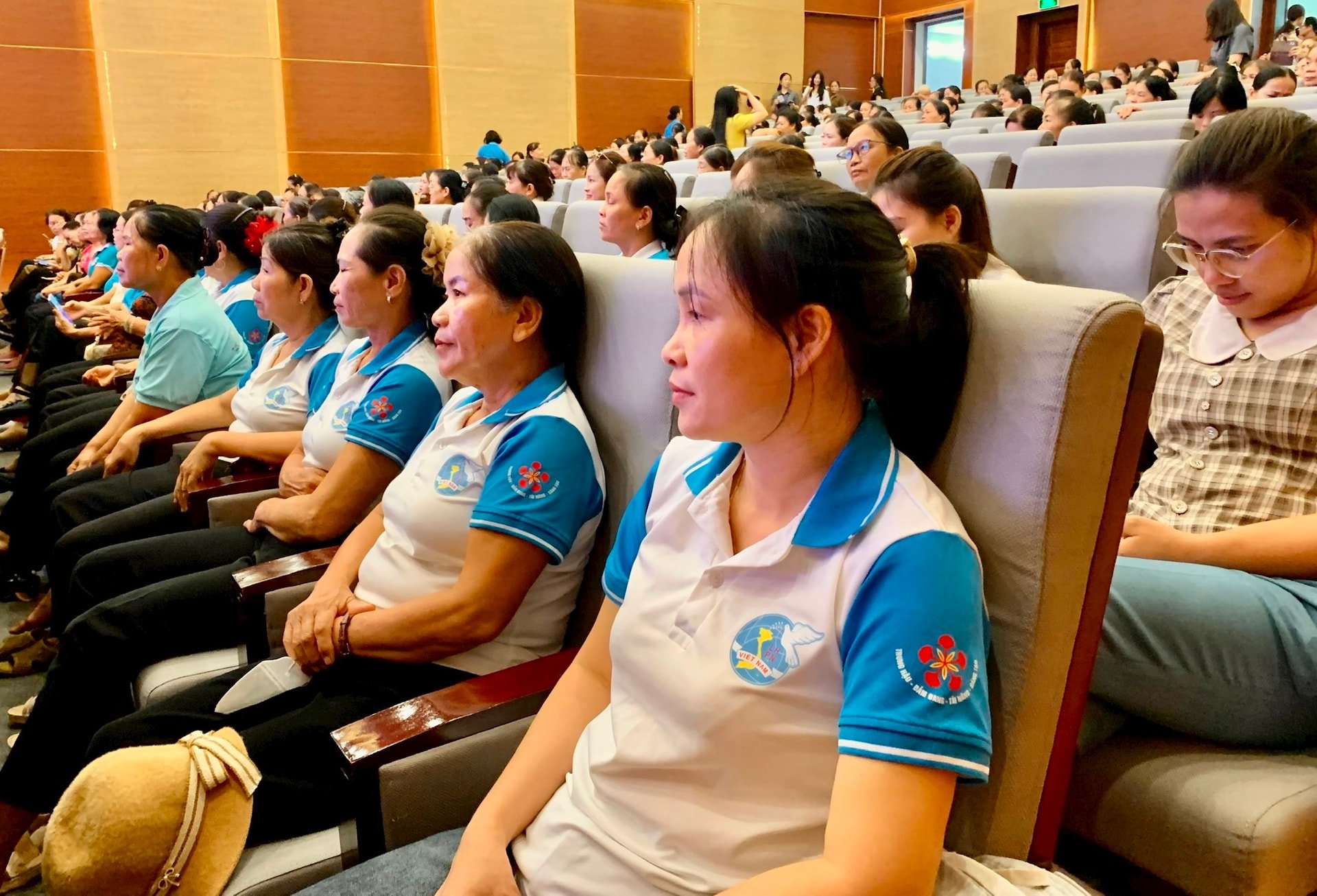















Comment (0)